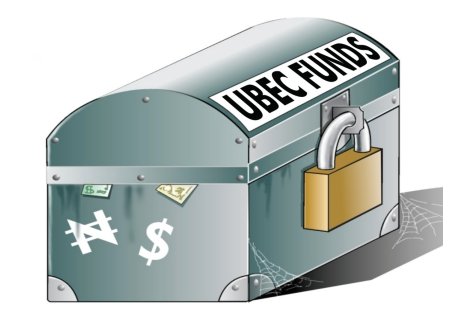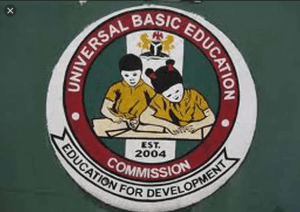The Universal Basic Education Commission (UBEC) has raised a pressing concern: more than ₦250 billion in intervention funds remain unused by the 36 State Universal Basic Education Boards (SUBEBs) and the Federal Capital Territory (FCT‑UBEB).
Dr. Aisha Garba, UBEC’s Executive Secretary, made this revelation during the opening remarks of a three‑day Financial Management Training, aimed at equipping finance directors, auditors, and matching‑grant desk officers with stronger financial oversight and project execution skills. The event, themed “Efficient and Effective Management of UBE Intervention Fund: A Key to Successful Basic Education Service Delivery”, underscores the Commission’s push for transparency and responsible fund management.
Table of Contents

₦250 Billion – A Crisis in Idle Funds
Despite significant allocations and disbursements intended to uplift educational infrastructure and teacher development, large sums remain untouched. Dr. Garba warned that a substantial portion of these intervention funds “still lie idle in government coffers,” directly impacting learning outcomes.
The root causes include:
- Delayed access to UBE Matching Grants
- Poor compliance with fund-utilisation guidelines
- Diversion of funds
- Failure to remit taxes
- Non-adherence to due process in awarding contracts
- Lack of adherence to approved action plans.
Progress Amid Concerns
Although over ₦250 billion is still unutilised, UBEC has recorded notable improvements since Dr. Garba took office in January 2025:
- ₦92.4 billion in Matching Grants has been accessed by 25 states and the FCT from January to June 2025.
- ₦19 billion was disbursed for the 2023/2024 Teacher Professional Development Fund, benefiting 32 states and the FCT.
- ₦1.5 billion reached 1,147 communities via the School-Based Management Committee School Improvement Programme (SBMC‑SIP).
These figures illustrate substantial gains—but also highlight that access does not equate to implementation or impact.
Uncovering the Weak Links
Dr. Garba’s first major oversight initiative—the 46th financial monitoring exercise in the North‑Central region—revealed deep-rooted issues in SUBEB operations. The lapses ranged from financial mismanagement to operational irregularities:
- Slow utilization and poor compliance
- Contract awards that flouted due process
- Tax evasion
- Diverting funds
- Ignoring approved action plans.
UBEC’s Roadmap for Reform
In response, UBEC has introduced several strategic initiatives:
- Revised utilisation guidelines with clarity on eligible expenses and reporting standards.
- A new SUBEB Action Plan template, strengthening planning and tracking capacity.
- Capacity development workshops, held on both national and international levels, aimed at building sustainable governance competencies among SUBEB and UBEC staff.
- Financial management training, equipping finance officers, auditors, and grant managers to enhance transparency, oversight, and accountability.
Such measures represent UBEC’s commitment to migrating from reactive to proactive fund governance.

Transparent Execution: Why It Matters
Dr. Garba emphasized: “The number of naira disbursed is secondary to how effectively it transforms a child’s learning experience.” She reminded attendees that accountability, timeliness, and credibility are foundational to educational equity.
The training sessions will also cover:
- Fund access procedures
- Submissions to the Matching Grant Desk
- New procurement best practices
- Identifying audit warnings and preventing infractions.
UBEC’s Renewed Call to Action
UBEC’s message to stakeholders is clear and unapologetic:
- State governments must prioritise fund drawdown and deployment.
- SUBEB officials must implement guidelines rigorously and adhere to robust oversight.
- Local education stakeholders are being urged to monitor and report fund usage for community benefit.
The Commission insists that building schools, training teachers, and upgrading classrooms cannot wait.
Looking Ahead
The current training program is part of UBEC’s larger strategy to ensure:
- No naira remains unused
- Every intervention leads to measurable improvements in school infrastructure and learning outcomes
- Transparent partnerships between federal and state actors
UBEC is also exploring digital reporting systems, real-time grant trackers, and community-level auditing mechanisms to safeguard against fraud and delays.

Conclusion
While the ₦250 billion unutilised funds represent a systemic failure, UBEC’s decisive leadership and reforms offer tangible hope. The financial training underway is not just administrative—it’s a lifeline for Nigeria’s education ecosystem.
Dr. Garba’s potent message resonates: “Access without action is failure.” As UBEC tightens its financial systems and state governments respond with urgency, children across Nigeria may finally begin to benefit from these long-sought resources.
Key Takeaways for Stakeholders
- For Parents: This is a pivotal moment—your voice can ensure interventions reach school gates.
- For SUBEBs: Timely access, compliance, and accountability are no longer optional—they are essential.
- For Government: Result-oriented collaboration will determine whether UBEC’s funds fuel growth or linger dormant.
Join Our Social Media Channels:
WhatsApp: NaijaEyes
Facebook: NaijaEyes
Twitter: NaijaEyes
Instagram: NaijaEyes
TikTok: NaijaEyes
READ THE LATEST EDUCATION NEWS





